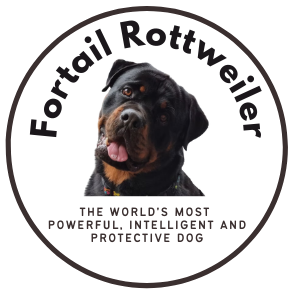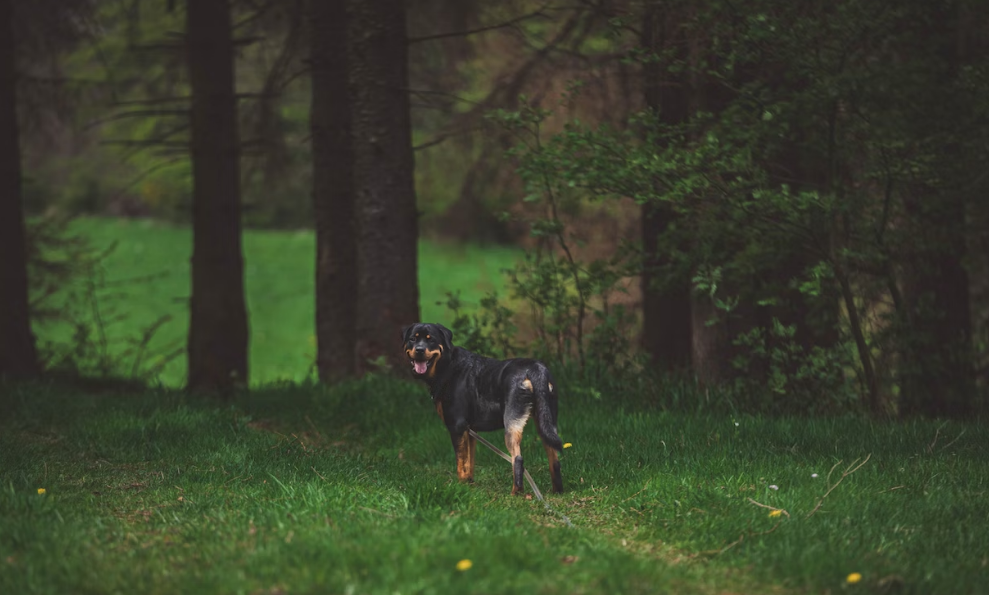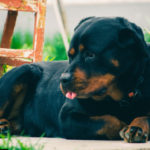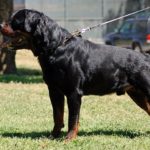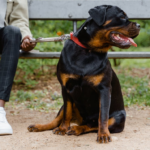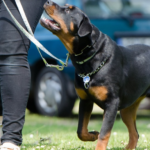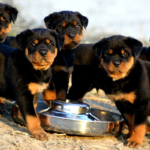Do you have a German Rottweiler? If you have, you are aware that these dogs are susceptible to various health difficulties. Focusing on improving your pet’s immune system is one of the most important things you can do to keep them healthy. In this post, we’ll look at how you can strengthen your German Rottweiler’s immune system, from a good diet and exercise to frequent vet checks and immunizations. Continue reading to find out how to keep your dog healthy for years to come!
The Role of Nutrition in Boosting the Immune System of German Rottweilers
Nutrition is essential for German Rottweilers to maintain a strong and healthy immune system. A well-balanced diet rich in high-quality protein, healthy fats, and a range of fruits and vegetables may provide the necessary nutrients and vitamins that the immune system requires. Furthermore, getting the appropriate number of calories and minimizing processed meals may help prevent obesity and other health problems. Feeding your Rottweiler a large breed food and consulting with a veterinarian or a professional nutritionist will help guarantee that your dog is getting all of the nutrients he needs to maintain a strong immune system. It’s also essential to remember that a dog’s nutritional demands might change as they age, so keep an eye on them and adjust their food as required.
The Importance of Regular Exercise for German Rottweiler Immune System Health
Regular exercise is essential for German Rottweilers’ overall health and well-being, including the immune system. Exercise keeps the body in shape, improves circulation, and may help avoid obesity, which is a risk factor for a variety of health conditions. Physical exercise also aids in the reduction of stress and anxiety, which may benefit the immune system. Exercise for Rottweilers should include brisk walks, jogging, swimming, and frequent training sessions. It is important to remember to begin carefully and gradually increase the intensity and length of the workout. It’s also crucial to keep an eye on your dog during exercise to make sure they don’t overdo it and to provide them rest breaks as required. Working with your veterinarian to develop a suitable fitness regimen for your German Rottweiler that considers your dog’s age, breed, and any current health concerns is essential.
The Connection between Stress and the Immune System
Stress may have a significant impact on German Rottweilers’ immune systems. Chronic stress has been related to a number of health issues, including a compromised immune system. Stress may cause hormones to be released, which weaken the immune system and make the dog more vulnerable to infections and diseases. This is why it is critical to assist dogs in managing stress and maintaining a healthy emotional state. Providing a secure and pleasant living environment, socializing and training, and positive reinforcement are all strategies to assist Rottweilers to cope with stress. Positive reinforcement training may help dogs gain confidence and trust while reducing stress in particular circumstances. If you feel that your Rottweiler is suffering from chronic stress, you should speak with a veterinarian, who can advise you on how to effectively handle the problem.
Environmental Factors that can Affect the Immune System
Several environmental factors could have a harmful effect on the immune system of German Rottweilers. Toxins, pollution, and pesticides are among them. Toxins and pollutants may compromise the immune system, making dogs more vulnerable to infections and diseases. Pesticides may be hazardous to dogs if consumed or breathed. Furthermore, secondhand smoking, mold, and dust mites may all have a negative impact on the immune system. Extreme temperatures, whether hot or cold, may put the body under stress and impair the immune system. Heat stroke and hypothermia are more common in German Rottweilers, and if ignored, may be fatal.
Final Takeaways
To summarize, maintaining a German Rottweiler’s immune system is important. You can offer your peter the greatest chance of keeping healthy by giving a well-balanced food, frequent exercise, and a stress-free environment. It is important to be aware of environmental elements that might have a negative impact on the immune system and to take precautions to reduce exposure to toxins, pollutants, and pesticides. Overall, adopting a proactive approach to the health of your pet will guarantee that they live a long and healthy life at your side.
